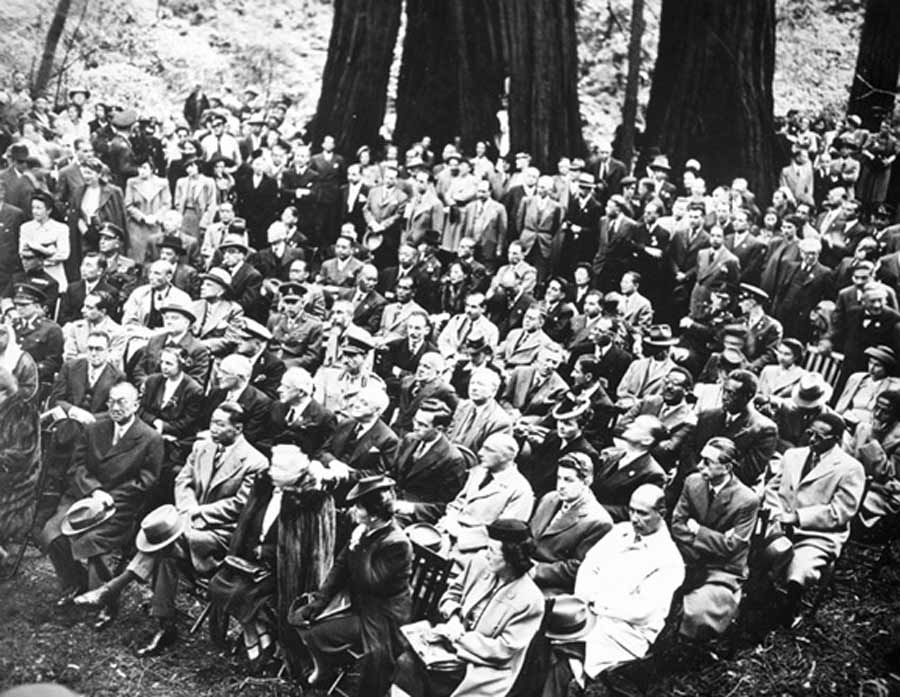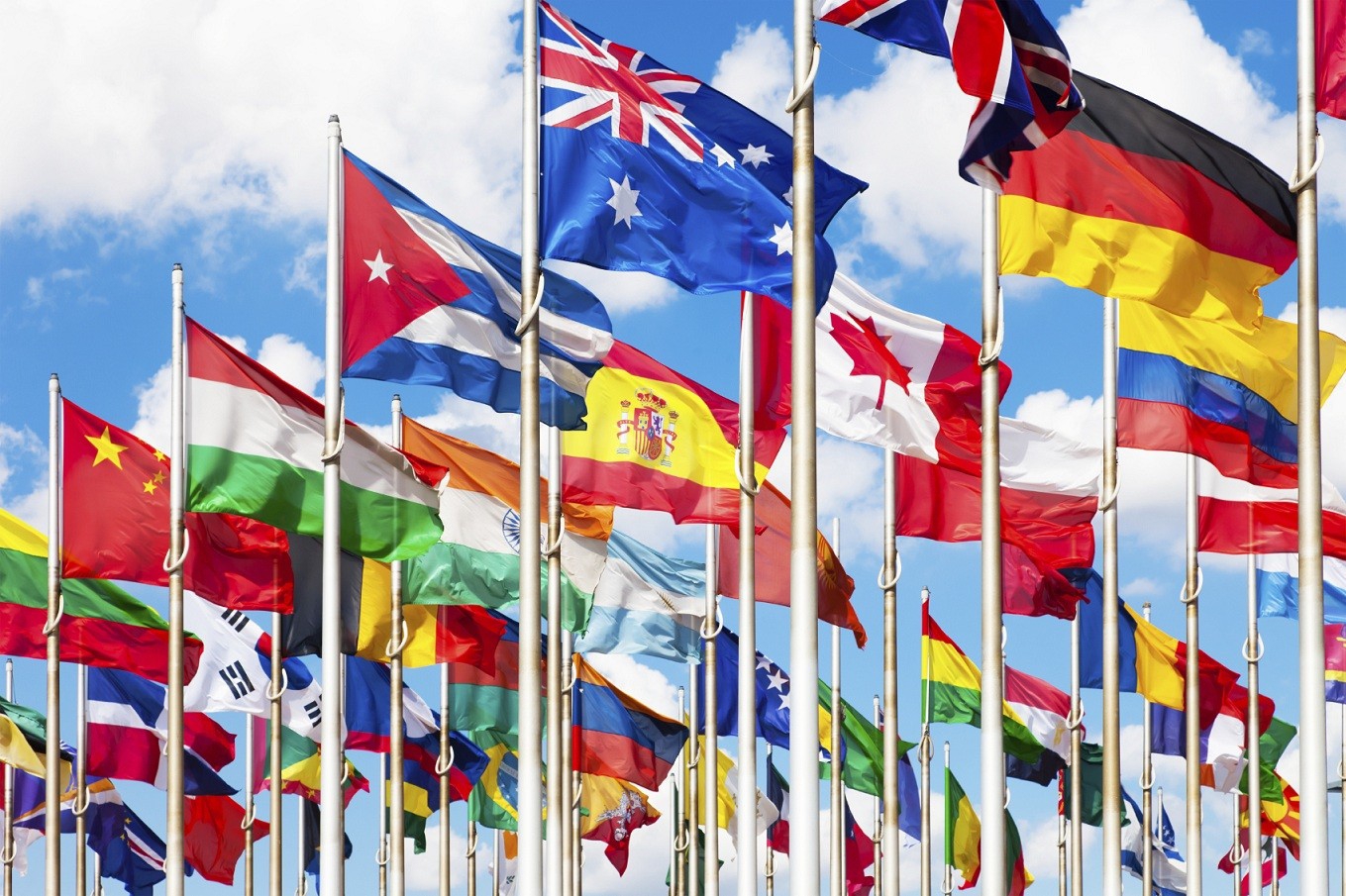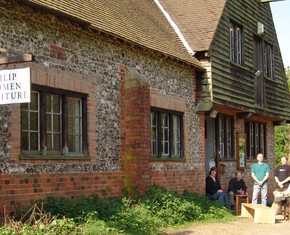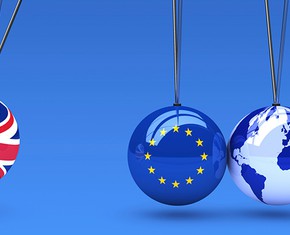The views expressed in our content reflect individual perspectives and do not represent the authoritative views of the Baha'i Faith.
Last week I took a walk through Muir Woods, the coastal Sequoia forest north of San Francisco, and stood at the spot where the founders of the United Nations once gathered.
Unless you’ve visited that beautiful, majestic forest, you probably didn’t know that 500 delegates from fifty countries gathered in San Francisco in May of 1945 to draft and sign the first United Nations Charter—and that all of them visited Muir Woods on May 19th in a ceremony to commemorate the death, one month before, of U.S. President Franklin Delano Roosevelt. It all started when the Save the Redwoods League proposed the idea to gather the UN delegates in the serenity of the redwoods to focus on sustaining world unity and global peace.
President Roosevelt and his representatives played a big part in crafting the initial framework for the United Nations, which began to be constructed as soon as World War II looked like it would produce an Allied victory for the United States, England and Russia over the Axis powers of Germany, Italy and Japan. As World War II wound down in early 1945, the United Nations Conference on International Organization, or UNCIO, hosted delegates from fifty Allied nations in San Francisco. The delegates met there during that foggy spring season to take part in reviewing and then rewriting the Dumbarton Oaks Agreements, part of a process set in motion by the Allied leadership early in the war. Those leaders—including Roosevelt, Churchill and Stalin—famously held their earlier meetings in Cairo, Tehran, Moscow and finally Yalta and Potsdam, trying to figure out a way to save the world from another devastating universal conflict and the horrific specter of the atomic bomb and mass extermination.

United Nation delegates, representing 46 different nations, attending a memorial service for President Franklin D. Roosevelt in Muir Woods National Monument. (photo circa 1945.)
At the 1944 Dumbarton Oaks conference, held in Washington, DC, high-level delegations from China, the Soviet Union, the United Kingdom, and the United States first agreed on the framework for the establishment of an organization to maintain peace and security in the world.
Designed to replace the League of Nations—that initial failed attempt at a worldwide intergovernmental body—the United Nations formally established itself on October 24, 1945.
It may surprise you even more that the Baha’i teachings had long foreseen these striking, world-encircling developments. When the UNCIO delegates met in 1945, few realized that Abdu’l-Baha had prophetically declared in San Francisco, a third of a century before:
May the men of affairs in this democracy uphold the standard of international conciliation. Then may altruistic aims and thoughts radiate from this center toward all other regions of the earth, and may the glory of this accomplishment forever halo the history of this country. May the first flag of international peace be upraised in this state. May the first illumination of reality shine gloriously upon this soil. – Abdu’l-Baha, The Promulgation of Universal Peace, pp. 376-377.
The United Nations, that new birth of hope for world peace, security and cooperation resulted, as the Baha’i writings had also foreseen, from the fiery ordeal of World War II. The global anguish and fear induced by the death of 50 million people in that war, along with the invention and first use of atomic weapons, evoked Abdu’l-Baha’s prescient earlier predictions that ultimately peace would come because the nations would be driven to accept it.
Of course, Baha’is understand that the United Nations is far from perfect, and will require significant further evolution before it can match Baha’u’llah’s world-embracing vision of a unified, democratically-elected global governing body:
Despite the obvious shortcomings of the United Nations, the more than two score declarations and conventions adopted by that organization, even where governments have not been enthusiastic in their commitment, have given ordinary people a sense of a new lease on life. The Universal Declaration of Human Rights, the Convention on the Prevention and Punishment of the Crime of Genocide, and the similar measures concerned with eliminating all forms of discrimination based on race, sex or religious belief; upholding the rights of the child; protecting all persons against being subjected to torture; eradicating hunger and malnutrition; using scientific and technological progress in the interest of peace and the benefit of mankind—all such measures, if courageously enforced and expanded, will advance the day when the spectre of war will have lost its power to dominate international relations. – The Universal House of Justice, The Promise of World Peace, p. 3.
Additionally, keep this fact in mind: since the establishment of the United Nations, although the world has seen many regional wars and conflicts, we have managed to avoid and avert the devastating specter of global war for more than seven successive decades. In a world bristling with deadly armaments, that remarkable accomplishment should make all humanity deeply grateful for international cooperation.
Despite its impact on our world today, few people truly understand everything the United Nations does. Financed by assessed and voluntary contributions from all of its member states, the UN maintains international peace and security in war and conflict zones, promotes and protects human rights, fosters social and economic development in the world’s developing nations, protects the environment through the UN Environmental Programme, and provides massive humanitarian aid in cases of famine, natural disaster, and armed conflict.
So I tried to imagine, as I strolled through the lush, hushed majesty of that ancient California forest, and gazed on the plaque those first delegates put there so long ago, what our world would look like without the United Nations. With our shrinking planet’s growing economic, resource and environmental interdependence, we would need to quickly invent an international body if we didn’t already have one.
We all know that the United Nations has drawn much criticism during its two-thirds of a century. Many see it as overly bureaucratic and ineffective in some areas of world conflict and peacekeeping. The undemocratic veto power of the five Security Council nations has certainly caused unnecessary stasis and policy gridlock. But despite its drawbacks and structural limitations, the United Nations has accomplished something the world has never before witnessed: a working intergovernmental body that endeavors to transcend the outmoded, war-inducing model of national sovereignty that has proven so detrimental to humanity.
















Comments
Sign in or create an account
Continue with Googleor